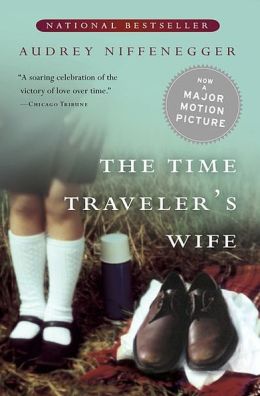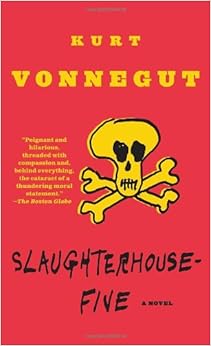Because this week's review book, The Time Keeper by Mitch Albom, deals so heavily with the concept of time, we are talking about our favorite time travel books today.
Mine is Douglas Adams' The Restaurant at the End of the Universe, the second book in the Hitchhiker's Guide to the Galaxy series.
The first part of the book deals with Zaphod's experience with the Total Perspective Vortex, which has little - if anything - to do with time travel, so I will skip it. After that ordeal, everyone goes to the restaurant at the end of the universe.
The titular restaurant is Milliways, which exists at the end of the universe regarding both space and time, and is therefore only accessible through time travel. (Unless you're Marvin, the paranoid android, who gets there by his powers of extreme patience.) It's very expensive, but you can afford to eat there by depositing a penny in a bank account during your present time, and the interest will compound enough to pay your bill by the time you arrive for your reservation.
After the scenes at Milliways and several other things happen, Arthur and Ford find themselves back on Earth, but in prehistoric times. They got there on a Golgafrinchan Ark Fleet B ship, which contains a bunch of hairdressers and telephone sanitizers that turned out to be the real ancestors of modern man (not the Neanderthals that they find there).
One of my favorite scenes in the entire series takes place in this setting, with Arthur trying to coax The Question out of a bag of Scrabble tiles. (This question being the one that goes with Deep Thought's Answer to Life, the Universe, and Everything, which was the disappointing: 42.)
Arthur manages to spell out "what do you get if you multiply six by nine" before he runs out of tiles. (You may notice that 6 x 9 is actually 54, but in base 13, 6 x 9 is actually 42. Adams swore he didn't mean to do this, and the math was meant to be incorrect.) A Neanderthal spells out "forty two" but this goes unnoticed, and is meant to be an indication that the Neanderthals were part of the Earth computation (built by Deep Thought to find the Question) but the Golgafrinchans were not.
This whole situation brings us one of my favorite quotations ever:
"Six by nine. Forty two."
"That's it. That's all there is."
"I always thought something was fundamentally wrong with the universe."
My most favorite time travel book is something very different from Alex's (which... I've noticed that our favorites are usually pretty different. Which is kind of the point of this blog.) I really love The Time Traveler's Wife by Audrey Niffenegger.

Henry can time travel, has been able to since he was six years old, but he has no control over when it happens or where he goes. The only thing he knows is that he's going to travel somewhere in his own timeline. Frequently, he runs into himself. He also can't take anything with him. So he has to steal money and food and even clothes.
During his time travel, he meets Clare. He's an adult when he begins to visit Clare (who is just a young girl herself), but the first time they meet in the present, Henry doesn't even know who Clare is, despite the fact that she has known him most of her life.
The story, however, is not so much about the time travel. It's more about the fact that Clare frequently doesn't know where her husband is and she can't participate on his adventures. She has to deal with the fact that it's something only he can experiance. Also, there are a lot of times that time traveling takes him away from her when she needs him.
One of the scenes I love best is when they get married. Henry, stressed out and therefore increasing the chances he'll jump, ends up traveling just an hour or so before their wedding. However, a future version of himself travels to the past. It's a future Henry that marries Clare (which she knows the second he gets to the altar, though no one else does), and later they have a small, private ceremony when he returns.
The book is incredibly well written, sweet and even a little heartbreaking. It's a book you should really pick up and read.



















